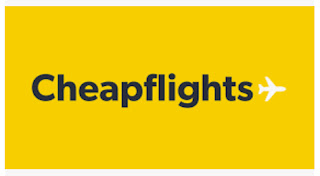Open Source Summit Kampala 2022
Today i had the privilege of attending the second Open Source Summit of Kampala. The numbers were great possibly about 70 young people. The event was slated for the Saturday 9th of April, 2022 at about 10PM. A lot if the hype around the event was created months ago but the major push came from the social media page on twitter that is alive and active. When i attended i admit to expecting some tables devoted to the Open Source giants of the age such as a Linux Community with all the major players and hearing about their work. As a Fedora, Open Suse and Ubuntu user myself i almost wanted to go with a copy of Linux on a stick that i recently installed in a dual boot environment.
The first session was hosted by Solomon Opio who brings with him a wealth of experience having started of with Outbox Hub. He is currently working with Innovation Village which played host to the event and sponsored a great part of it. What was interesting was to hear his perspectives about the tech space in general and the work of the various hubs and spaces and what they are doing for the tech ecosystem. I was keen to hear what Solomon saw different in the work that he has done with Outbox Hub and now Innovation Village which is a bigger and broader expression of what some have been doing in the past. What he was mainly concerned was the fact that events were mainly just one day centered and that there was rarely much done to follow up. As such Solomon Opio’s concern was that this was resulting in attendees who would only show up for one event and then disappear through the cracks. The model that was developed later was one where the events that were held were always related so that there was a greater sense of achievement and progress.
The second session was hosted by Ephraim Malinga a tech enthusiast and practitioner. He gave a history of the Open Source movement and how the different players have contributed to the space as it exists in the present day. He spoke about the fact that success is cumulative and mainly community driven. He mentioned some of the key players in early adoption of tech and how some of the major players have failed to take advantage of the push for Open Source. He spoke about some of the key projects in the past that were developed in programs like Scratch and how they helped contribute to the pool of engineers that are currently causing ripples across the African continent and the tech world.
Andrew Kakinda delivered the talk about recruitment. How to attract and look attractive to recruiters. This was a session where the focus was on tools like Linkedin. There were great insights on how to make the most of the platform. Ideas about better profile pictures, better biographies, how to create more attractive introductions of what you do to the world.
Ether Ninsiima of Tunga spoke about what Tunga is doing for the development of tech talent on the continent and some of the opportunities that exist for good coders. She encouraged those who attended to make sure that they are building and creating and making use of the languages themselves and coding as opposed to making use of the popular Content Management Systems.
Steven Musoke has been in the Tech Space for a while. He shared his story with the participants talking about the different phases of his life from when he first interacted with computers in high school to his mentor in this matter. He came from the introductory phase to the phase where he was sharing and learning to the final stage where he is contributing, advocating and doing the work of an 'evangelist'. He talked about the importance of gaining mastery in an area and then not just stopping there but getting many more skills to add on what you have. He talked about the compounding effect of knowledge that you gain when you add to what you know.
In his own words, “I recommend you give 120% to your employer (50 hours as others give 40) and add 50% for your personal growth to achieve exponential growth through compounding to mastery. Also balance work & growth with life & social endeavors”.
There were a few more sessions including one from Deborah a great Technical writing lead. She shared with us the various tools that are available for technical writers and some of the many opportunities that exist in the arena. She was also present for a second talk in which she talked about some of the work that the Open Source Community Chapter in Kampala has done in the last few years. There was a mention of the partners that exist such as Zofi Cash, Innovation Village, Motiv, Tunga and Prisma.
Mr. Kateregga spoke on behalf of Open Street Maps as well as the Wikimedia Community. He shared some of the benefits that exist in the Mapping and how local users can benefit from contributing to these maps. He also talked about how some of the many companies in the world were now adopting Open Street Maps in their work from Meta to Apple to FB. He described the various expressions of their work such as Mapathons and Mapping Parties wehre they carry out projects in their communities.










Thanks for sharing this. Great stuff
ReplyDeleteThank you Ephraim. If you want to read more about what we write, we also have a magazine we publish called Intersection. We have an account devoted to the mag on twitter @TersectionMag where you can read what we write about. We have advertising in the magazine at affordable prices as well as an option of running supplements.
ReplyDelete